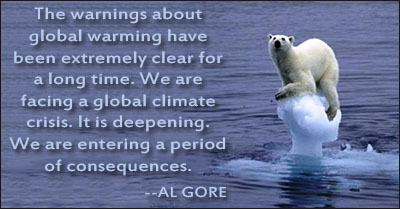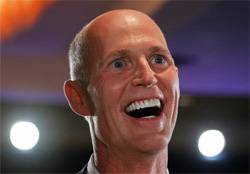- Dec 8, 2013
- 22,675
- 16,877
- 2,415

A new study out of Germany casts further doubt on the so-called global warming “consensus” by suggesting the atmosphere may be less sensitive to increases in carbon dioxide emissions than most scientists think.
A study by scientists at Germany’s Max Planck Institute for Meteorology found that man-made aerosols had a much smaller cooling effect on the atmosphere during the 20th Century than was previously thought. Why is this big news? It means increases in carbon dioxide emissions likely cause less warming than most climate models suggest.
What do aerosols have to do with anything? Well, aerosols are created from human activities like burning coal, driving cars or from fires. There are also natural aerosols like clouds and fog. Aerosols tend toreflect solar energy back into space, giving them a cooling effect that somewhat offsets warming from increased CO2 emissions.
The Max Planck study suggests “that aerosol radiative forcing is less negative and more certain than is commonly believed.” In layman’s terms, aerosols are offsetting less global warming than was previously thought. And if aerosols aren’t causing as much cooling, it must mean carbon dioxide must be causing less warming than climate models predict.
“Going forward we should expect less warming from future greenhouse gas emissions than climate models are projecting,” write climate scientists Pat Michaels and Chip Knappenberger with the libertarian Cato Institute, adding that this study could be a “death blow” to global warming hysteria.
Independent climate researcher Nick Lewis put out a study last year with Georgia Tech’s Dr. Judith Curry that found that the climate’s response to a doubling of atmospheric CO2 levels — a measurement called “climate sensitivity” was 1.64 degrees Celsius.
Lewis revised his findings based on the Max Planck aerosol study and found something astounding: climate sensitivity drops dramatically. Lewis also looked at climate sensitivity estimates given by the Intergovernmental Panel on Climate Change — often regarded as the world’s top authority on global warming.
The IPCC’s latest assessment put climate sensitivity between 1.5 and 4.5 degrees Celsius. The IPCC says that despite “the large uncertainty range, there is a high confidence that aerosols have offset a substantial portion of [greenhouse gas] global mean forcing.”
Basically, the IPCC says aerosols deflect a lot of warming — the opposite of the Max Planck study’s finding.
But incorporating the results from the Max Planck study dramatically reduces the upper bound estimate of climate sensitivity from 4.5 degrees to 1.8 degrees Celsius.
To put this into perspective, atmospheric concentrations of CO2 currently stand at around 400 parts per million, if this were to double, according to the IPCC’s estimates temperatures could rise as high as 4.5 degrees Celsius.
But incorporate the Max Planck study results and warming would only be as high as 1.8 degrees Celsius — less than half what the IPCC originally predicted.
Michaels and Knappenberger say Lewis’s findings basically eliminate “the possibility of catastrophic climate change—that is, climate change that proceeds at a rate that exceeds our ability to keep up.”
New Study Is A Death Blow To Global Warming Hysteria The Daily Caller








